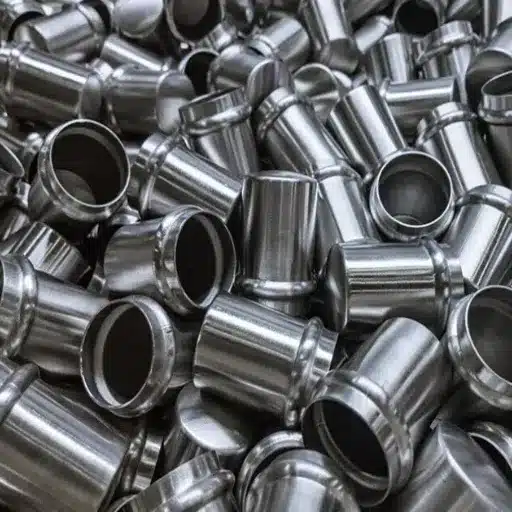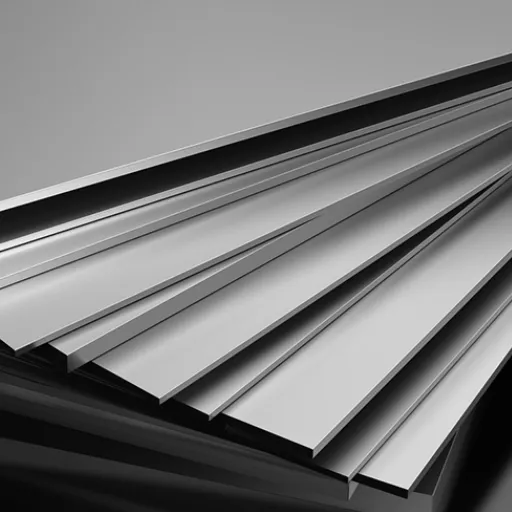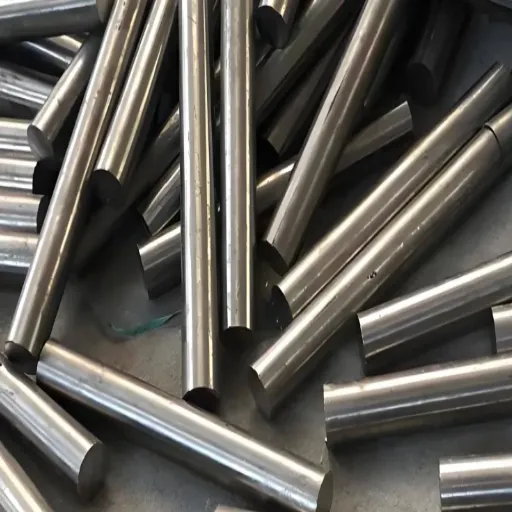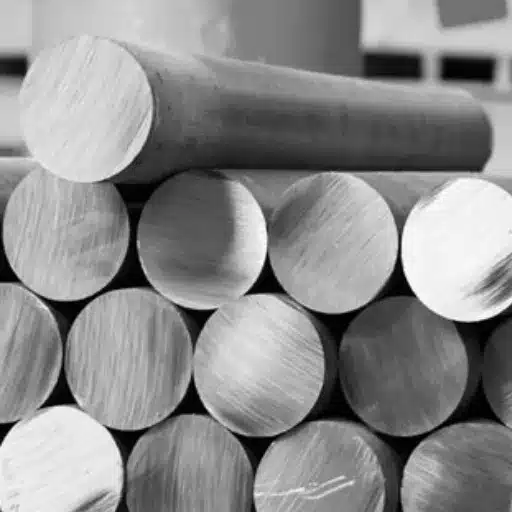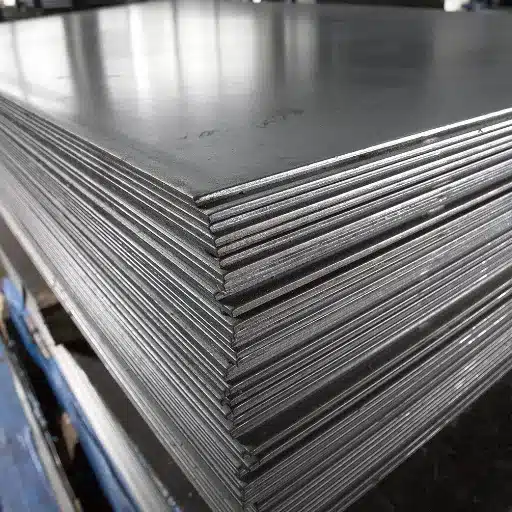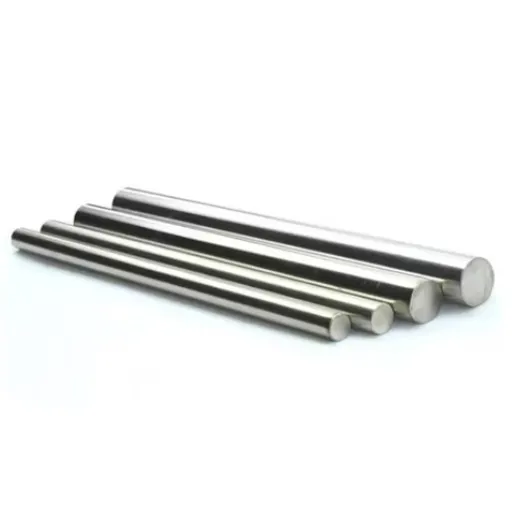Cobalt alloy selection requires industries that use high-performance materials to make critical decisions about their suppliers. Your project’s success in aerospace, medical, and industrial manufacturing depends on the quality and reliability of your alloys. The blog provides complete information about supplier excellence by showing essential characteristics and explaining the advantages of working with reliable suppliers. You will acquire all the necessary information to select the most suitable alloy for your needs. The process to obtain high-quality cobalt alloys requires all essential elements, which we will cover through effective and precise methods.
Understanding Cobalt Alloys
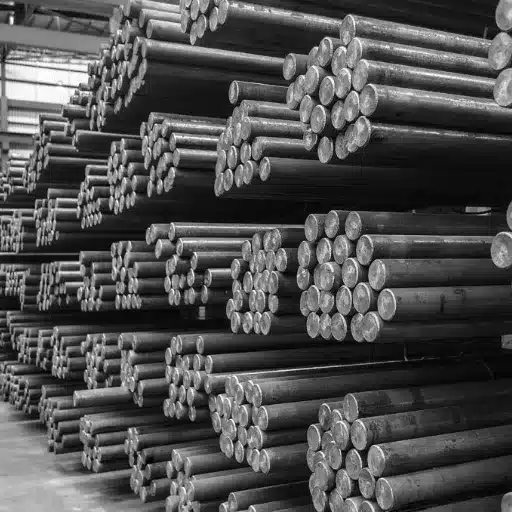
What is Cobalt Alloy?
Cobalt alloys exist as a type of metal alloy that primarily contains cobalt together with chromium and molybdenum, nickel, tungsten, and iron. The alloys were engineered to achieve their remarkable strength and wear resistance and their ability to endure high temperatures, which allows them to function in extreme operating conditions. The typical composition includes 40 to 60 percent cobalt content, which changes according to different application needs.
Cobalt alloys demonstrate their principal characteristic through their capacity to withstand corrosion in environments that face extreme chemical exposure and seawater contact. The materials exhibit exceptional mechanical properties, which enable them to endure both high tensile strength and fatigue strength, making them appropriate for aerospace, medical, and industrial applications. Cobalt-chromium alloys serve as common materials for orthopedic implants because they provide biocompatibility and durability, while cobalt-based superalloys function as essential components for jet engines and gas turbines, which maintain structural integrity at temperatures above 1000 °C (1832 °F).
Recent technological improvements in cobalt alloy technology have established better 3D printing performance through their improved melting and solidification capabilities. Research results demonstrate that additive manufacturing uses cobalt-chromium alloys to achieve new precision benchmarks, which enable reduced material waste while meeting industry standards.
The global cobalt alloy market will experience significant expansion because the aerospace and healthcare sectors use these materials as their main drivers for developing new technologies. The materials will remain crucial for advanced technological solutions because of their distinctive combination of strength and corrosion resistance, and heat tolerance.
Key Properties of Cobalt Alloys
Cobalt alloys possess several key properties that make them indispensable in advanced industries. Their strength and durability, together with exceptional heat resistance and ability to resist corrosion, make them special to industrial applications. The ability of the materials to resist wear makes them appropriate for medical applications and aerospace applications, which demand high-performance results.
The global cobalt alloy market will reach a compound annual growth rate (CAGR) of 8.5% between 2023 and 2030 because energy, manufacturing and healthcare industries create increasing demand for cobalt alloy products, according to recent market analysis. Cobalt alloys function as vital components of turbine blades and jet engine components, which require high-temperature performance in aerospace applications. Current research demonstrates that Cobalt alloys have become essential materials for medical implants, which include hip replacements and dental prosthetics, because of their biocompatibility and strength.
The current global production patterns require sustainable cobalt sourcing because the mineral occurs in restricted and politically unstable areas. Additive manufacturing technologies, which include 3D printing, enable companies to use cobalt alloys more productively because they decrease material waste and increase cost savings. The industry will transform through these advancements because companies need high-performance materials which will drive demand in the market.
Comparison with Other Alloys: Nickel and Steel
Cobalt alloys have consistently stood out for their exceptional performance in high-stress and corrosive environments. Cobalt alloys provide superior wear resistance and thermal stability to aerospace, medical, and industrial applications when compared to nickel alloys. The primary function of Inconel nickel alloys exists in high-temperature conditions, while Stellite cobalt alloys protect their mechanical characteristics through their oxidation resistance at temperatures that exceed 1500 °F (815 °C).
People prefer to use steel because it combines low costs with multiple uses. Cobalt alloys outperform standard steel alloys because they provide better corrosion protection and high-temperature performance. Cobalt-chromium alloys provide superior corrosion protection to stainless steel, which can only protect against mild corrosive environments, making them the ideal choice for medical implants and cutting tools.
The aerospace and healthcare sectors demonstrate a rising demand for cobalt-based superalloys, which will reach a CAGR of around 7% from 2023 to 2030 according to market research. The superior mechanical and thermal properties of cobalt alloys drive growth, which occurs because production methods such as powder metallurgy and 3D printing have better optimized their performance while reducing production expenses.
Benefits of Cobalt Alloys
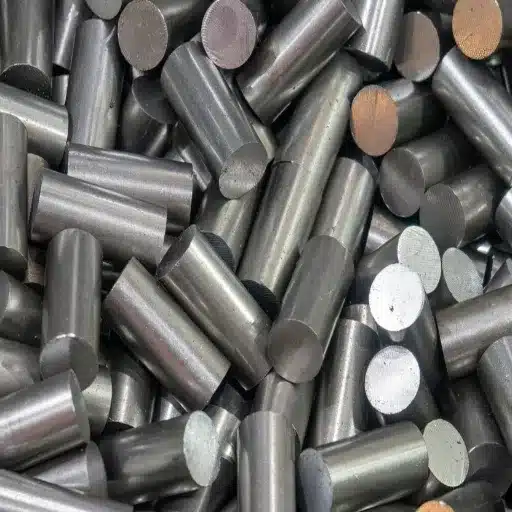
High-Temperature Stability
Cobalt alloys display their excellent ability to operate at high temperatures, which makes them necessary for the aerospace industry and energy generation applications. The materials retain their strength and prevent corrosion at elevated temperatures, which makes them ideal for applications in jet engines and gas turbines, and medical implants. New research findings show that cobalt-based superalloys sustain their structural integrity at temperatures exceeding 1100°C, which outperforms most other materials.
Cobalt alloys provide exceptional defense against oxidation and thermal fatigue. The latest industry research shows that modern alloy formulation improvements, which add chromium, tungsten, and nickel, have raised property performance to new heights while boosting high-heat system operational efficiency and reliability. A June 2023 report from MarketsandMarkets shows that 35% of new aerospace turbines use cobalt alloys to achieve better performance while reducing environmental damage through enhanced fuel efficiency.
Wear Resistance and Durability
Cobalt alloys deliver outstanding protection against wear while also offering durability, which makes them critical for businesses that operate under extreme conditions. Recent studies show that cobalt-based materials exhibit better abrasion resistance compared to many traditional alloys when subjected to high-stress situations. The Grand View Research analysis from 2023 shows that the global cobalt alloy market will experience a compound annual growth rate (CAGR) of 7.3% during the period from 2023 until 2030. The market expansion occurs because the energy, medical, and aerospace industries require equipment that can withstand heavy usage.
Metallurgical advancements have led to improved performance of cobalt alloys in environments that contain corrosive materials. Research published by SpringerLink in February 2023 shows that cobalt-chromium-molybdenum alloys can withstand both pitting and crevice corrosion for extended periods in environments that contain high chloride concentrations. This makes them a preferred choice for applications such as marine engineering and medical implants. The increasing demand for cobalt alloys, which offer high durability, leads to their rising usage in specialized industries that depend on advanced product development.
Corrosion Resistance in Diverse Environments
Cobalt-chromium alloys deliver outstanding corrosion protection, which maintains their protective ability under severe environmental conditions. The property becomes essential for chloride-rich environments, which include seawater and saline industries that face continuous danger from pitting and crevice corrosion. Recent studies show that cobalt-based superalloys with 20-30% chromium content display superior resistance because they develop a stable passive oxide layer. According to a 2023 report by StatNano, the global corrosion-resistant alloys market will achieve 5.8% annual growth with cobalt alloys becoming the dominant choice for various applications because of their dependable performance.
Cobalt alloys serve essential functions in offshore oil and gas operations because they protect critical components, which include tubing, pipelines and fasteners. The materials become essential because they can handle sour gas environments, which contain hydrogen sulfide (H2S) and carbon dioxide (CO2). Cobalt-chromium alloys guard medical implants and prosthetics against body fluids, resulting in longer-lasting products within the biomedical field. National Institute of Standards and Technology (NIST) testing showed that cobalt alloys maintain more than 98% of their tensile strength after extended exposure to corrosive materials, which proves their strength.
Researchers continue to improve alloy formulation through the inclusion of trace elements such as molybdenum, which results in better corrosion resistance. Industries that require materials to deliver reliable performance under extreme operational conditions have adopted cobalt-based materials as their main standard.
Applications of Cobalt Alloys
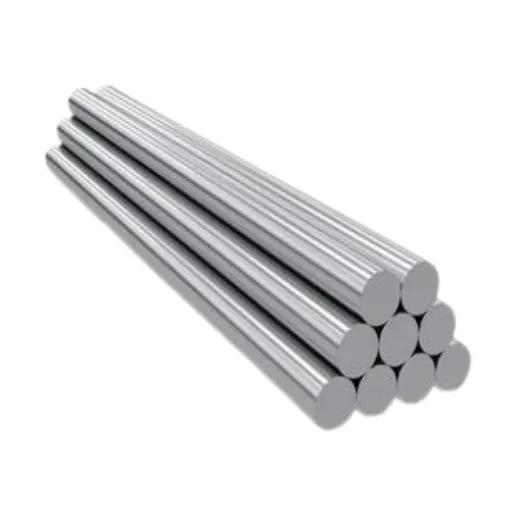
Aerospace Industry Applications
Cobalt-based alloys serve as essential materials for aerospace applications because they provide exceptional protection against heat and corrosion while their mechanical properties remain intact. The materials maintain infinite durability because they enable the creation of vital components, which consist of turbine blades and jet engine parts, and exhaust components. Cobalt alloys deliver vital protection for high-performance gas turbine engines when they operate at extreme temperatures, which reach 2,000 degrees Fahrenheit, while preserving their structural integrity.
Recent data indicates that over 30% of superalloys that jet engines use contain cobalt, which extends their lifespan and reduces material wear. The creation of single-crystal cobalt-based superalloys enables better performance because the material shows 15% improved creep resistance when compared to traditional polycrystalline materials. The aerospace industry requires lightweight materials that maintain high strength because modern technologies used in aircraft manufacturing need these materials to achieve better fuel efficiency.
Research and development activities will help cobalt alloys maintain their position as leading materials in aerospace applications because they provide solutions for extreme environment challenges while delivering safe operational performance.
Medical Device Manufacturing
Cobalt alloys function as vital components in medical device manufacturing because their unique properties create protection against wear and corrosion, while their biocompatibility and performance durability remain intact. Cobalt alloys serve their most important purpose in orthopedic implants, which include hip and knee replacement systems. The materials deliver superior mechanical strength combined with wear resistance, which leads to extended operational life and enhances patient outcomes.
Recent research shows that the global orthopedic implant market will experience a compound annual growth rate of 5.4% until it reaches approximately $74 billion by 2030. The expansion of this market occurs because of the aging population, increasing osteoporosis rates and new cobalt alloy-based implant materials entering the market. Cobalt-chromium alloys find extensive usage in dental prosthetics and cardiovascular devices, which include stents and pacemakers, because these materials need to match human body requirements while delivering dependable performance.
The research shows that medical device manufacturers are increasingly using additive manufacturing technology, which includes 3D printing. Cobalt alloys see increasing use in this technology because it enables the creation of customized implants and complex designs that were difficult to produce before. Cobalt alloy innovations drive revolutionary transformations in the medical device industry because they develop new medical technologies that improve patient outcomes.
Automotive Components and Energy Solutions
Cobalt alloys serve as essential materials for automotive and energy applications because they enable the development of technologies that operate with higher efficiency, greater durability, and environmental sustainability. The manufacturing sector uses these materials to create jet turbines and engine parts and battery electrodes, and solutions for renewable energy. The automotive sector demands more cobalt because electric vehicle batteries require it to meet increased market needs. Cobalt functions as an essential element in lithium-ion battery cathodes because it enhances energy density while boosting stability and charging performance, which improves electric vehicle range and efficiency.
The Cobalt Institute report shows that battery production accounts for nearly 60% of global cobalt consumption because the electric vehicle market drives this demand. Tesla has developed its nickel-cobalt-aluminum batteries and nickel-cobalt-manganese batteries, which use cobalt to ensure both operational power and battery lifespan. Cobalt-based alloys find application in energy solutions, which include wind turbines and solar panels, because their durability protects against wear and corrosion to maintain operational efficiency through time.
The environmental movement has driven innovations in cobalt recycling, which includes research into new material options. Companies establish closed-loop systems to retrieve cobalt from used batteries because they recognize the benefits of recycling operations. The automotive industry uses advanced materials through cobalt applications that remain relevant because they shape future development in clean energy solutions.
Quality Standards for Cobalt Alloys
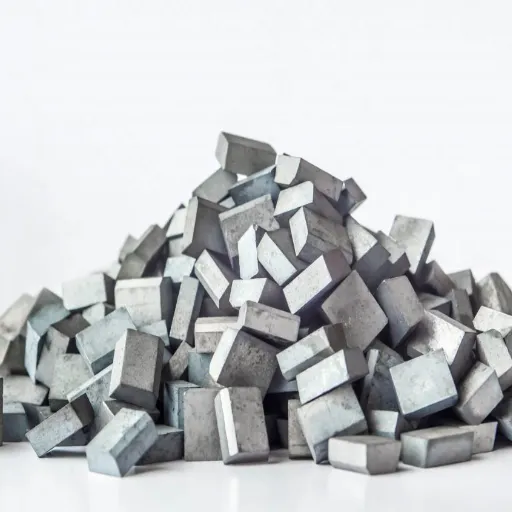
ISO and ASTM Standards in Cobalt Alloys
ISO established international standards through its ISO standards, while ASTM developed standards through the American Society for Testing and Materials, which both established rules that industrial sectors use to assess cobalt alloys’ performance and quality. The standards establish material properties together with testing methods and allowable limits, which enable trustworthy results. ISO 5832-4 establishes requirements for cobalt-based surgical implant alloys that ensure both biocompatibility and strength necessary for medical purposes. The ASTM F75 standard defines requirements for cobalt-chromium-molybdenum alloys, which exist in solid form and serve as primary materials for orthopedic equipment because they provide superior wear resistance and corrosion protection.
Recent market analysis shows that the global cobalt alloy market will expand between 2023 and 2030 at a compound annual growth rate of 5.6percent because the aerospace and medical, and energy industries increasingly need cobalt alloys. Cobalt alloys, which turbine engines use as their primary material, serve as valuable components because they maintain their strength under extreme heat conditions that reach temperatures of 1,150°C, 2,100°F. The materials comply with the strict quality standards that ASTM establishes because they require accurate heat treatment methods to sustain performance during intense operational situations.
ISO and ASTM standard alignment creates new opportunities for cobalt alloy innovation, according to existing research. The industry utilizes these standards to create processes that achieve both sustainability goals and cost savings objectives. The newer formulations that the company has developed focus on minimizing environmental impact during the processes of cobalt extraction and alloy manufacturing, while they also meet essential quality requirements for green energy systems.
Importance of Compliance in Manufacturing
Manufacturing processes require compliance to ensure that businesses produce safe products that comply with environmental regulations while keeping their workers safe. Companies that maintain ISO and ASTM standards throughout their operations see a 25percent decline in product defects, together with a 30percent boost in customer satisfaction, according to data from the industry that researchers collected during 2023. Organizations that follow regulatory requirements achieve penalties that cost them less because OSHA fines reach up to 14,502 dollars for each violation, according to current OSHA data.
Recent studies show that sustainable manufacturing methods, which enterprises implement through compliance systems, have become more popular throughout the world. The global green manufacturing market is projected to grow at a compound annual growth rate (CAGR) of 12.3% from 2023 to 2030. The manufacturing process which businesses implement through their operations, allows them to comply with regulations while attracting customers who care about environmental sustainability. The businesses should adopt these practices because they create more opportunities to reach new customer segments in their target markets.
Quality Assurance Processes
Quality assurance (QA) processes ensure that manufactured products meet required criteria for quality, together with reliability and performance. Recent research shows that companies that implement complete digital QA systems experience operational efficiency improvements that range between 20 percent to 30 percent. The production processes implement automated testing methods together with advanced analytics technologies, which detect production defects during early stages of manufacturing. Manufacturing companies use AI-based predictive analytics tools to enhance their quality assurance processes because of Industry 4.0 technology implementation. The global market for AI in quality management will reach 5.5 billion dollars by 2028, according to a 2023 market study, because manufacturers need to produce high-quality products through modern manufacturing methods. Enterprises can achieve two benefits by utilizing these technological advancements because they enable regulatory standard compliance and help businesses develop exceptional market-ready products.
Reference Sources
- Mordor Intelligence – Cobalt Alloy Powder Market Report
This report provides detailed market analysis, including growth trends, market size, and key applications of cobalt alloys. It highlights industries like aerospace, medical, and energy as major consumers of cobalt alloys.
Link to source - Spherical Insights – Cobalt Alloy Market Size and Forecast
This source offers comprehensive data on the global cobalt alloy market, including segmentation by manufacturing and product type. It also discusses the market’s growth potential and key industries driving demand.
Link to source
Frequently Asked Questions (FAQs)
What are cobalt alloys, and why are they essential in quality manufacturing?
Cobalt alloys are metal alloys that use cobalt as their primary element, together with chromium, molybdenum, and tungsten. The materials exhibit outstanding strength properties and resistance to wear, and their performance remains stable under extreme temperature conditions and corrosive environments. Cobalt alloys serve as vital materials for aerospace, medical and energy manufacturing industries, which require top-tier materials that guarantee their operational longevity and performance capacity.
How do cobalt alloy suppliers ensure reliable service and high-quality materials?
Cobalt alloy suppliers establish trustworthy operations through their dedication to strict quality control methods, which enable them to fulfill both industry requirements and regulatory obligations. The company uses modern production techniques, which include precision casting and forging, to create alloys that maintain stable performance characteristics. The suppliers deliver certifications and documentation that prove that the materials meet all necessary specifications so customers receive superior products for their needs.
What industries benefit most from using cobalt alloys?
Cobalt alloys exist as essential materials for various industries that require materials with superior strength and reliability. The aerospace sector uses them for turbine blades and other high-stress components, while the medical industry relies on cobalt alloys for orthopedic implants and dental devices due to their biocompatibility. The materials serve additional functions in energy production because they function as essential parts for gas turbines and nuclear power plant equipment, which require protection from heat and corrosion.
Are cobalt alloys environmentally sustainable?
Cobalt alloys exhibit high performance efficiency yet their production process, together with their entire operational duration, raises environmental sustainability questions. The majority of suppliers now focus on implementing sustainable operational methods, which include ethical cobalt sourcing and material recycling practices. The combination of innovative manufacturing methods and environmental regulation compliance results in the development of materials that produce lower environmental effects.
How do I select the right cobalt alloy for my application?
Your application needs specific requirements that determine which cobalt alloy you should select. A trustworthy supplier will assist you in discovering the best alloy composition that meets your particular needs. The suppliers provide technical support and material selection guidance to help you find the best material for achieving maximum performance.
What role does advanced technology play in manufacturing cobalt alloys?
Advanced technology plays a pivotal role in producing cobalt alloys because it ensures their high quality and consistent manufacturing standards. The combination of 3D printing and advanced heat treatment techniques enables the manufacturing process to create alloys that demonstrate both precise dimensions and exceptional strength. The innovations help suppliers to satisfy the increasing demands from industries that need high-quality alloy products while maintaining their competitive performance standards.

